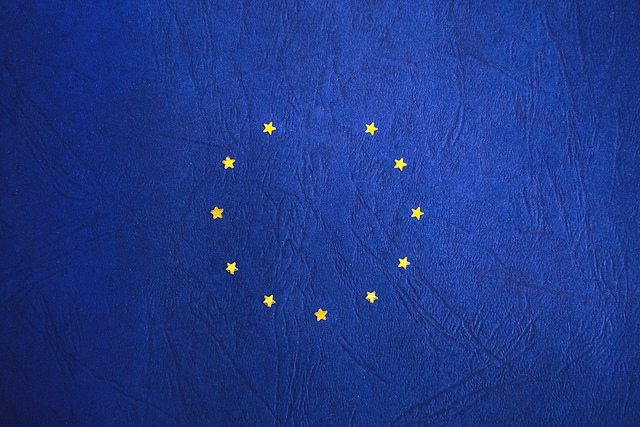JST 129 – Brexit: decision-making and consequences
Photo courtesy of freestocks.org and flickr
“In any decision for action, when you have to make up your mind what to do, there is always a ‘should’ involved, and this cannot be worked out from, ‘If I do this, what will happen?’ alone.”
Richard P. Feynman
Physicist
The Thursday June 23rd vote on whether or not the United Kingdom should remain a member of the European Union saw an impressive 72% turnout, with a tiny majority (51.9% vs 48.1%) voting to leave. The following morning my Facebook feed was filled with shock, sadness and disbelief (most of the people in my Facebook neighbourhood appear either to have been “Bremainers”, or to have had the good grace to remain silent in the face of their neighbours’ tears). While I have my own thoughts on how the campaigns were conducted, I’m struck by how much fear, grief and uncertainty is showing up in the wake of this vote. My daughter, Tallulah, has a favourite story (a Taoist folk-tale) that I’ve included in my forthcoming book, and that may bring you some clarity and comfort at this time. Here’s an excerpt from my forthcoming book (to be published by Wiley-Capstone, Autumn 2016):
As the world becomes more complex, volatile and uncertain, the consequences of our decisions become increasingly ambiguous, and we all have times when we find them challenging to make. Some decisions seems trivial (E.g. choosing your breakfast, a pair of socks or what movie to watch). Some seem more significant (E.g. selecting a holiday, buying a car or accepting a promotion). Some can seem enormous (E.g. moving in together, changing careers or starting a new venture) and some have consequences that are truly vast (E.g. Cutting jobs, privatising the National Health Service or bombing enemy territories). But here’s the thing: While different decisions bring different consequences and levels of complexity, there’s nothing in reality that makes one decision more difficult than another…
The outside-in misunderstanding is the main source of difficulty in decision-making…
But as you fall out of the complexity of contaminated thinking…
You fall into the simplicity of wisdom and common-sense…
People aren’t good at predicting emotional responses
Research reveals that people do poorly when it comes to predicting their emotional states in future scenarios. We fall prey to a variety of cognitive biases, amplifying our expected emotional response to certain things while underplaying or even ignoring others. While we can passionately believe that we would feel terrible if X happened or wonderful if Y happened, the truth is more fundamental: remember, you can’t be a victim of circumstance, and neither can anyone else. We’re always going to be living in the experience of THOUGHT in the moment, no matter what.
There’s an old Taoist story about a farmer whose prize mare runs away. “What bad luck”, the farmer’s neighbours commiserate, but he replies, “Maybe, maybe not.” The next day, the mare returns with a powerful stallion following behind. “What a fortunate man you are”, the neighbours say as the farmer and his son corral the two horses, but he is again philosophical. “Maybe, maybe not.” Later that day, the farmer’s son falls and breaks his leg while attempting to tame the wild stallion. “That really is rotten luck”, the neighbours tut, but (to their annoyance) the farmer replies, “Maybe, maybe not.” A few days later, a general and his troops come to the village and conscript all the young men to fight at the front. All except the farmer’s son, who stays at home because of his broken leg. “You have to admit, that was incredibly lucky”, the bewildered neighbours say, shaking their heads at the farmer’s mysterious powers as he replies predictably…
Maybe, maybe not…
While 100% of your feelings are generated from within, the optical illusion of the mind can make it seem like they come from the outside; from somewhere other than THOUGHT in the moment. While the neighbours perceived the farmer’s life as a wild pendulum of good fortune and bad, the farmer remained composed and philosophical. It can absolutely seem like your security and wellbeing is coming from circumstances (E.g. money, jobs, romantic partners), the future (E.g. hopes, fears, uncertainties), the past (E.g. victories, defeats, indiscretions) and even yourself (E.g. physique, health, personality). But all of those factors are neutral. 100% of your feelings are generated from within; you’re living in the experience of THOUGHT taking form in the moment.
Reality check
So am I saying it doesn’t matter what you decide? No, I’m not. The choices you make can have an enormous effect on your life and the lives of others, today and 20 years from today. Your ability to make good decisions is infinitely improved when you’re not being hamstrung by contamination from outside-in misunderstanding. When you’re hanging out in reality, you intuitively realise what you’ve got going for you.
To your increasing clarity,
Big love
Jamie
